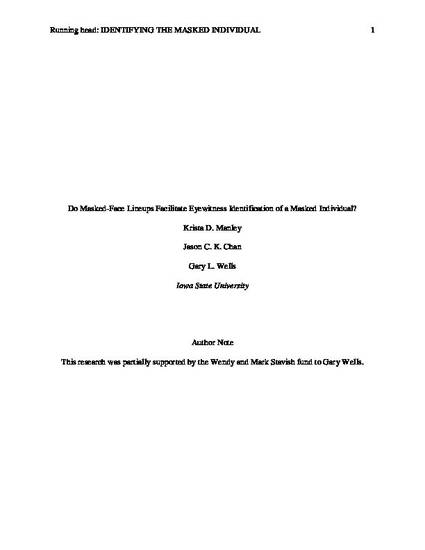
Perpetrators often wear disguises like ski masks to hinder subsequent identification by witnesses or law enforcement officials. In criminal cases involving a masked perpetrator, the decision of whether and how to administer a lineup often rests on the investigating officer. To date, no evidence-based recommendations are available for eyewitness identifications of a masked perpetrator. In 4 experiments, we examined lineup identification performance depending on variations in both encoding (studying a full face vs. a partial/masked face) and retrieval conditions (identifying a target from a full-face lineup vs. a partial/masked-face lineup). In addition, we manipulated whether the target was present or absent in the lineup in Experiments 3 and 4. Across all experiments, when participants had encoded a masked face, the masked-face lineup increased identification accuracy relative to the full-face lineup. These data provide preliminary evidence that matching lineup construction to how witnesses originally encoded the perpetrator may enhance the accuracy of eyewitness identifications.
Available at: http://works.bepress.com/jason_chan/28/

This article is published as Manley, K. D., Chan, J. C. K., & Wells, G. L. (2018). Do masked-face lineups facilitate eyewitness identification of a masked individual? Journal of Experimental Psychology: Applied. Advance online publication. Doi: 10.1037/xap0000195 . Posted with permission.